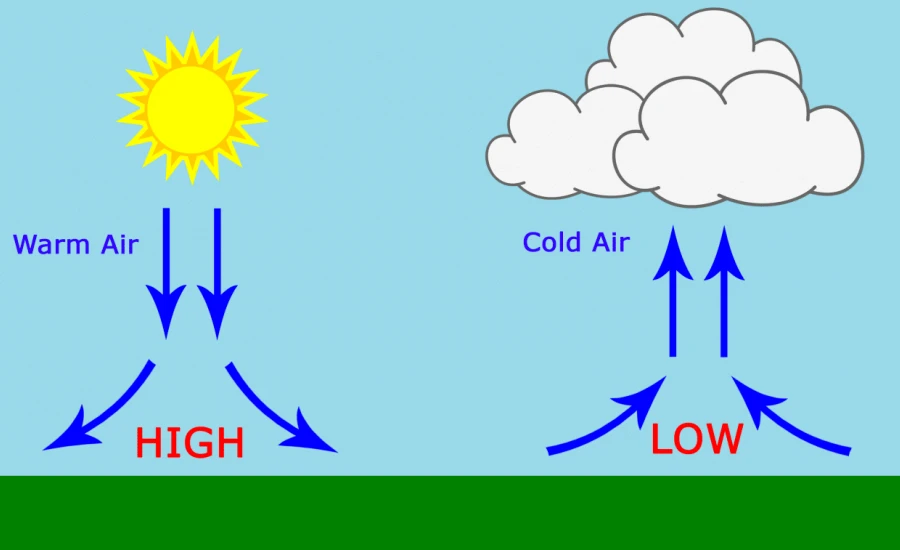
# Atmospheric Air Pressure Definition and Explanation
## What is Atmospheric Air Pressure?
Atmospheric air pressure, often simply called air pressure or atmospheric pressure, is the force exerted by the weight of air molecules in Earth’s atmosphere on a given surface area. It’s essentially the weight of the column of air above any point on Earth’s surface.
## How is Air Pressure Measured?
Air pressure is typically measured using a barometer and is expressed in several units:
– Pascals (Pa) – the SI unit
– Millibars (mb) – commonly used in meteorology
– Inches of mercury (inHg) – traditional measurement
– Atmospheres (atm) – standard atmospheric pressure
## Factors Affecting Atmospheric Pressure
Several key factors influence atmospheric pressure:
### Altitude
Pressure decreases with increasing altitude because there’s less air above to exert force.
### Temperature
Warm air is less dense than cold air, leading to lower pressure in warm conditions.
### Humidity
Moist air is less dense than dry air, resulting in slightly lower pressure.
## Standard Atmospheric Pressure
At sea level under standard conditions (15°C or 59°F), atmospheric pressure is defined as:
– 101,325 Pascals
– 1013.25 millibars
– 29.92 inches of mercury
– 1 atmosphere
## Importance of Atmospheric Pressure
Understanding air pressure is crucial for:
– Weather forecasting (high and low pressure systems)
– Aviation (altitude calculations)
– Human physiology (effects on the body)
– Industrial processes (various manufacturing applications)
## Variations in Air Pressure
Normal air pressure at Earth’s surface varies between:
– 980 to 1050 millibars (mid-latitudes)
– As low as 870 mb in intense tropical cyclones
– As high as 1085 mb in strong anticyclones
## Measuring Devices
Several instruments measure atmospheric pressure:
– Mercury barometer (traditional)
– Aneroid barometer (mechanical)
– Digital barometer (electronic)
– Barograph (records pressure changes over time)
## Practical Applications
Atmospheric pressure affects many aspects of daily life:
– Cooking (pressure cookers, high-altitude adjustments)
– Sports (ball inflation, athletic performance)
– Health (ear popping, altitude sickness)
– Technology (weather instruments, aircraft systems)
Keyword: atmospheric air pressure definition